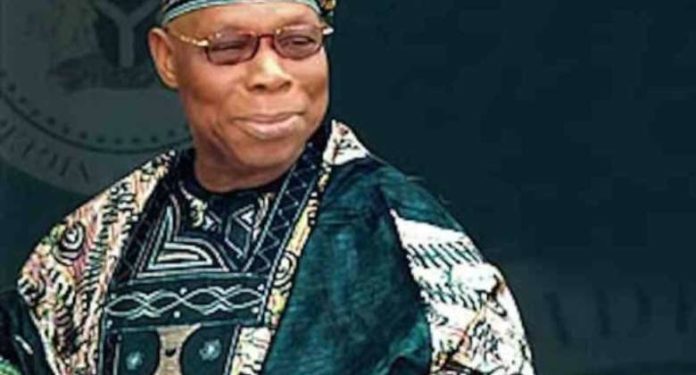Professor Goski Alabi, President of the African Council for Distance Education (ACDE), has described the sterling leadership qualities demonstrated by Chief Olusegun Obasanjo, former President of the Federal Republic of Nigeria as a model in leadership and development, particularly in the field of education.
According to Prof. Alabi, who is also the Consulting President of Laweh University College, Accra, the establishment of the National Open University of Nigeria (NOUN), a seminal higher education institution, by former President Obasanjo, is an eloquent testament of his visionary leadership in the field of education.
A statement issued by Laweh University College, copied to the Ghana News Agency said Prof. Alabi made these observations when she addressed a symposium in honour of former President Obasanjo at his Presidential Library at Abeokuta as part of activities to mark his 85th Birthday which fell on March 5.
She spoke on the theme: “The Narrative on Leadership and the Role of Education”.
Prof . Alabi noted that Africa’s past educational leadership had been built around the prioritization of primary and secondary education, to the detriment of higher education.
“One that has been built around an educational system that tramples over skill in favour of certification. A system that perpetuates semi-illiteracy and often produces certified but unable people,” she said.
She said for Africa’s educational leadership to transform its developmental narrative, the phenomenon of prioritizing certificates over skill and attitude must give way to a complete overhaul and re-engineering of the educational system, our mindset and attitudes.
She noted that in responding to all development plans of Africa, from the Sustainable Development Goal 4 (SDG4) to Continental Education Strategy for Africa (CESA), to the Africa Agenda 2063, there was the need to echo “Leaving No One Behind”, including those who have already been left behind.
This requires the deployment of technology and Open, Distance and Blended Learning as key vehicles.
She called on African leaders to learn from the shining example of former President Obasanjo who established the National Open University of Nigeria, about 20 years ago, which today enrols over 600,000 students.
She also urged African scholars to do more to develop their own literary materials for teaching and learning, particularly textbooks that rely on African experiences and cases.
She added that “research should be tailored towards the strategies of the agenda 2063, the Africa we want. But this would require investment.”
Prof. Alabi recommended that African education should focus on technology, skill and attitude; adding that, “it must also prioritize the arts and the preservation of our culture in a way that responds directly to the labour market and social needs of Africa while recognizing global trends.”
She said specifically for the arts, Africa should focus on using its films, music, dance food and emerging technologies like social media to project the narrative they want, a narrative that every African would be proud to be associated with and this requires training a new breed of public relations experts and journalists.
She called on wealthy Africans like Dangote to consider investing in creating a media platform like BBC, CNN to drive the new African narrative.
The African Council for Distance Education also used the opportunity to present to former President Obasanjo, the African Strategic Leadership Award for Education for his role in promoting inclusive and equitable education for all and prayed for health and long life for the man who is considered Africa’s Father of Modern Leadership.
The event was chaired by Mr Nicephore Dieudonne Soglo, former President of Benin, and was under the auspices of an organising committee, headed by Prof Peter Okebukola of Nigeria.
Other key personalities who spoke at the event included President Paul Kagame of Rwanda; Sheikh Shakbook bin Nahyan, Minister of State, Foreign Affairs of the United Arab Emirates; Dr Ngozi Okonjo-Iweala, Director-General World Trade Organization (WTO); and Professor Juma Shabani, former Director, UNESCO Cluster Office Bamako.
